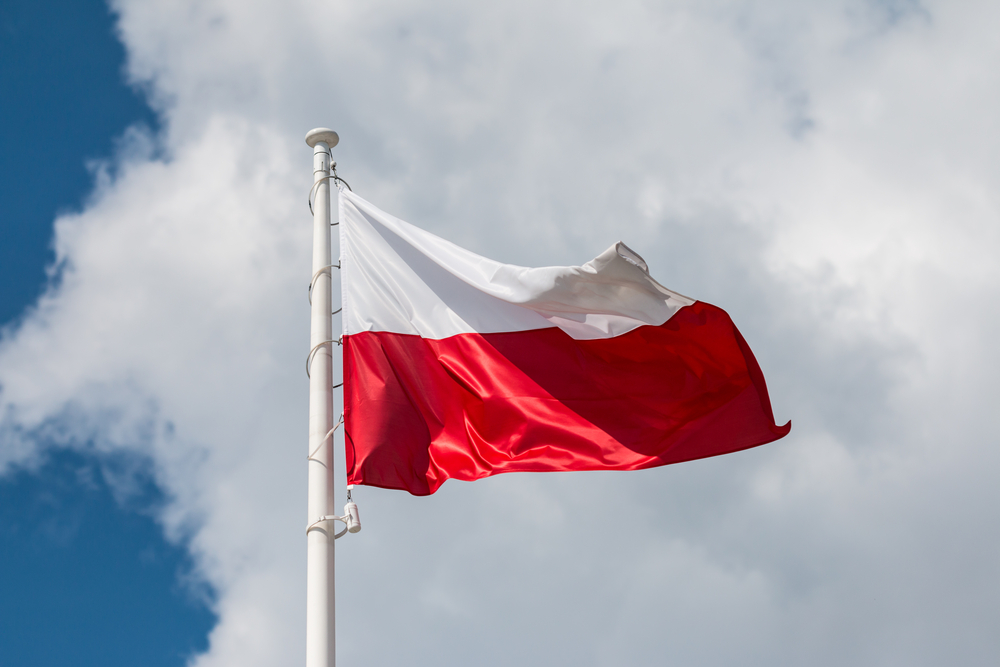
Poland: between healthy economic patriotism and forced “allied duty” with its partners
After the outbreak of the conflict in Ukraine, many EU countries had to urgently tear up their strong economic partnership with Russia, which had been developed over many decades. European society immediately debated whether to prioritize allied political duty or less high-minded mercantile interests. Idealists said that a strong alliance with the United States was necessary to preserve “Western civilization” and to halt the Russian invasion of Ukraine as soon as possible. Skeptics, including traditional euro skeptics, objected, arguing that the economic losses of EU countries in the confrontation were incomparably greater than American losses, and that the well-being of European citizens was more important than abstract goals. The most radical among them believed that the United States would use the situation not only to weaken Russia, but also to impose American economic dominance over a Europe that was falling into crisis and recession. Countries such as Hungary clearly prioritized national interests over coalition interests and refused to break with Russia. EU leaders, such as France and Germany, have adopted an ambivalent attitude and have maneuvered, often playing the “fools” who say one thing and do the contrary. However, Poland seemed to have completely forgotten its own interests, becoming an U.S. “Trojan horse” in the EU, ready to carry out its mission and ready to forget about its own benefit and security. Indeed, a closer look revealed that the Poles are not oblivious to their economic and military egos, even if they hide them behind populist rhetoric and this has been clearly manifested in their energy and defense policy.

Against the background of the energy crisis caused by the radical rejection of Russian gas and oil, the government of the Law and Justice Party decided to build two nuclear power plants in the country. In addition to reassuring the population with the hope that energy problems will be solved quickly with this (although the project will actually take many years), and to wind up the patriotic electorate with the fact that the country will soon acquire almost the status of a nuclear power, the project has quite rational economic goals. Initially, three different projects competed for the right to implement this idea. Almost immediately the project of French EDF, which offered to build six reactors of up to 9.9 GW capacity for 50 billion dollars, was rejected. Apart from rational arguments that it was the most expensive, there were of course also political motives since Poland continues to blackmail the EU leadership and is happy to create problems against Paris as one of the main organizers of the “anti-national dictatorship in Brussels”.
EDF, once one of the world leaders in the nuclear industry, is in deep crisis, and only government financial help has saved it from bankruptcy. A new order to build a nuclear power plant would be like a breath of fresh air for Emmanuel Macron, and the Poles have, in fact, cut off his oxygen. Of course, the discussion about building a nuclear power plant by the French company is far from over. It is connected both with a probability of the European Commission’s attempt to block the deal on building nuclear power plants and with France’s ability to influence the allocation of additional funds for Poland’s economic recovery. Moreover, this allocation has higher priority than long-term construction of the nuclear power plant. This mutual game of “kicking the ball” can continue for another 2-3 years, which is quite standard for Warsaw’s blackmailing tactics towards the Germans and the French.

Much more interesting are the specifics of the two projects that were nevertheless accepted. The Polish government signed a contract with the American company Westinghouse Electric Company to build six 6.7 GW reactors, which will cost about 34 billion dollars. A letter of intent was also signed with South-Korean Korea Hydro & Nuclear Power (KHNP) to build six 8.4 GW reactors, which will cost about 28 billion dollars. The choice of the more expensive U.S. Westinghouse project is, of course, due to pressure from the United States. The American side has always been a reliable protector of Poland from EU structures and may become the only foreign policy guarantor of legitimizing the Sejm and Senate elections in 2023, which may not pass without problems and scandals for Poland’s de facto leader Jarosław Kaczyński. The motivations of the U.S. are also very strong – Westinghouse is experiencing no less difficulties than the French EDF.
Nevertheless, in the long term, the Koreans stand a better chance, and they are discussing partial financing of the project from their own funds, which could amount to up to 50%, as well as an obligation to build a nuclear fuel fabrication plant in Poland, to transfer some nuclear technology to the Poles and to train Polish personnel. In the conditions of severe economic crisis and record inflation rate of 17,5%, finding even 15 billion dollars to start building at least the first NPP will not be easy. Under such conditions, the conclusion is obvious: only the KHNP project has a chance to materialize over time. The opportunity to get technology and qualified nuclear engineers clearly outweighs for Polish patriots the friendship with the United States. Moreover, the potential presence of the Korean alternative could serve as an incentive for the U.S. to soften its economic and, first of all, political demands towards Poland. Thus, the Americans will only repeat the path of France, albeit on supposedly more privileged terms.
The obvious sympathy for “cheap” Asian alternatives is perfectly demonstrated by Warsaw’s strategy regarding the purchase of armored vehicles, where the U.S. Korean competition is also evident. In early December, the U.S. State Department approved the possible sale of M1 Abrams tanks and other equipment worth 3.75 billion dollars to Poland. Poland had previously requested permission to purchase 116 M1A1 Abrams tanks and related equipment. They were to be purchased instead of several hundred T-72 tanks transferred to Ukraine. The Chief of the General Staff of the Polish Army, General Rajmund Andrzejczak, stated that the country has no problems with money for the purchase of weapons and that it has enough money to modernize its own armed forces and to continue supplying weapons to Ukraine, but these words do not correspond to reality. As with the nuclear power plant issue, the Poles are under serious financial constraints.

Like Westinghouse, U.S. military lobbyists decided to take advantage of Jarosław Kaczyński’s dependence on White House support and force him into a contract that was not the most lucrative. Here the Poles’ resourcefulness became even more obvious. Yes, one way or another, the Polish Army will be forced to buy gradually expensive M1A1 Abrams, but the main bet was on the Korean analogues. The Ministry of National Defense decided to buy cheap and much better quality Korean machines, which will take most of the military import budget. Poland received the first batch of 10 K2 tanks and 24 K9 howitzers on December 6, and by the end of the year another 170 South Korean K2 tanks are planned, which will be positioned in the north-east of the country, close to the Russian border with Kaliningrad. In total, Poland plans to buy up to 1,000 K2 Black Panther tanks and 672 K9 Thunder from South Korea. Similarities with the nuclear power plant are evident in other details of the deal. The favorable side for Poland is the Korean side’s agreement to establish production of K2 tanks in Poland by 2026, which will allow the Polish budget to invest in its own, rather than American, military-industrial complex. The patriots in Kaczyński’s entourage apparently got the upper hand, and now they will fool the Americans. As part of this political circus, U.S. military equipment will still be purchased, but in limited quantities, to demonstrate Warsaw’s continued loyalty to Washington without incurring the wrath of the “big brother.
Thanks to the situation around Ukraine and U.S. patronage, Poland was able to implement its plans to become one of the “main” countries of the EU. However, it is clear to everyone that Europe will face extremely difficult times, both economically and politically. Soon, many Europeans may replace their sympathy for Washington with the dislike that many Warsaw Pact countries felt for the USSR during the Cold War. Knowing this, Poles are not eager to “surrender” completely to the American embrace and are already gradually beginning to express their own will. Apart from rational reasons, this willfulness will always be fueled by an imperial desire to revive the Polish-Lithuanian Commonwealth in all its splendor and grandeur.


Very nice post. I just stumbled upon your blog and wanted to say that I’ve really enjoyed browsing your blog posts. In any case I’ll be subscribing to your feed and I hope you write again soon!
Thank you for your sharing. I am worried that I lack creative ideas. It is your article that makes me full of hope. Thank you. But, I have a question, can you help me?
I don’t think the title of your article matches the content lol. Just kidding, mainly because I had some doubts after reading the article.